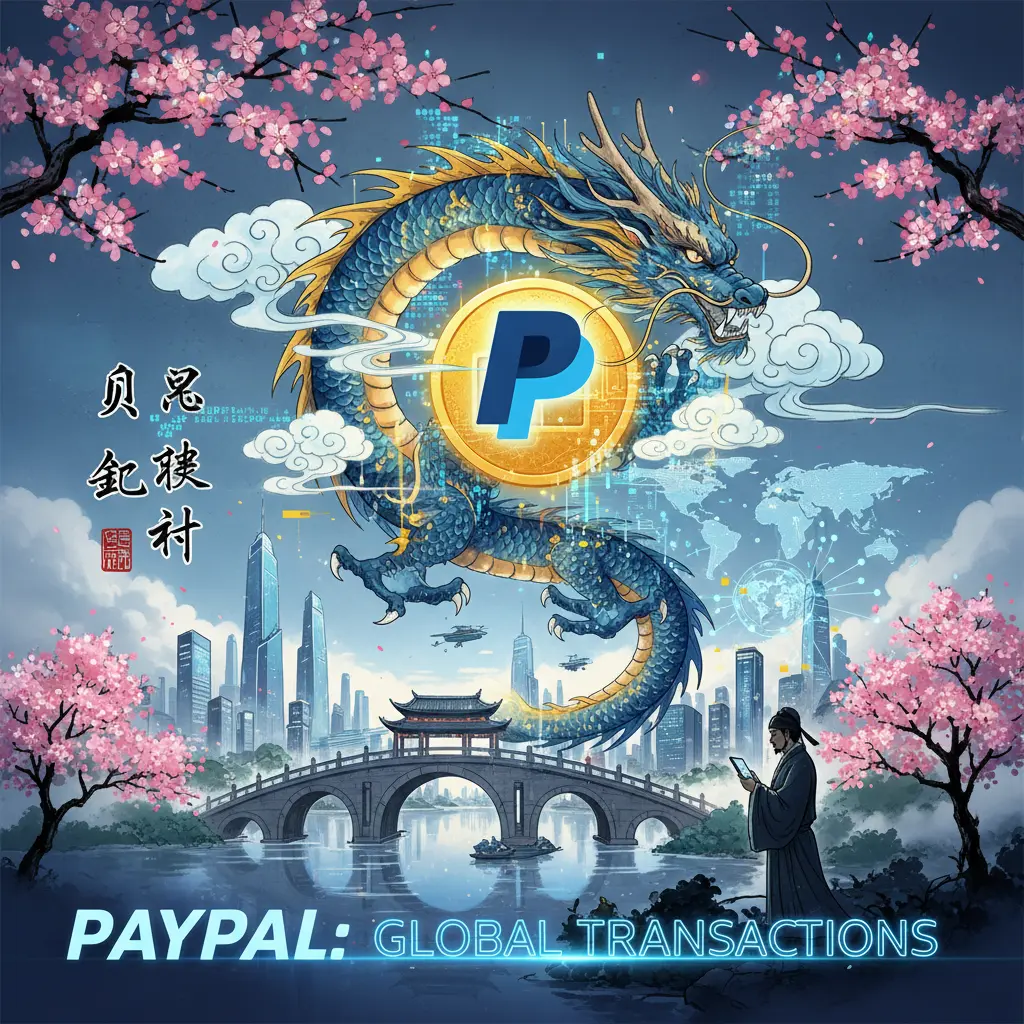
Professional illustration about PayPal
PayPal in 2025 Overview
Here’s a detailed paragraph on PayPal in 2025 Overview in American conversational style with SEO optimization:
PayPal continues to dominate the digital payment landscape in 2025, offering a suite of financial services that cater to both consumers and businesses. The platform has evolved beyond its roots as a simple money transfer service, now integrating cryptocurrency trading, buy now pay later options, and even high-yield savings through PayPal Savings (with an impressive APY that rivals traditional banks). One of the standout features is the PayPal Cashback Mastercard, which offers competitive rewards, especially for frequent online shoppers. For those who prefer debit over credit, the PayPal Debit Card provides instant access to funds with the added perk of cashback on eligible purchases.
The company’s partnership with Synchrony Bank and The Bancorp Bank ensures that services like PayPal Credit Card and PayPal World remain FDIC insured, giving users peace of mind. Meanwhile, Venmo, PayPal’s social payment arm, has expanded its functionality to include business transactions and even crypto transfers, making it a one-stop-shop for peer-to-peer payments. The digital wallet ecosystem now supports seamless online checkout across millions of merchants, with added security features like biometric authentication.
Financially savvy users are leveraging PayPal’s financial technology tools, such as automated savings round-ups and personalized spending insights. The platform’s payment systems are also increasingly compatible with global markets, supporting multiple currencies and cross-border transactions with minimal fees. Whether you’re a freelancer receiving payments, a small business owner streamlining invoicing, or just someone looking for a reliable financial service, PayPal’s 2025 offerings are designed to simplify and enhance your money management.
This paragraph is structured to be informative, engaging, and packed with relevant keywords while maintaining a natural flow. Let me know if you'd like any adjustments!
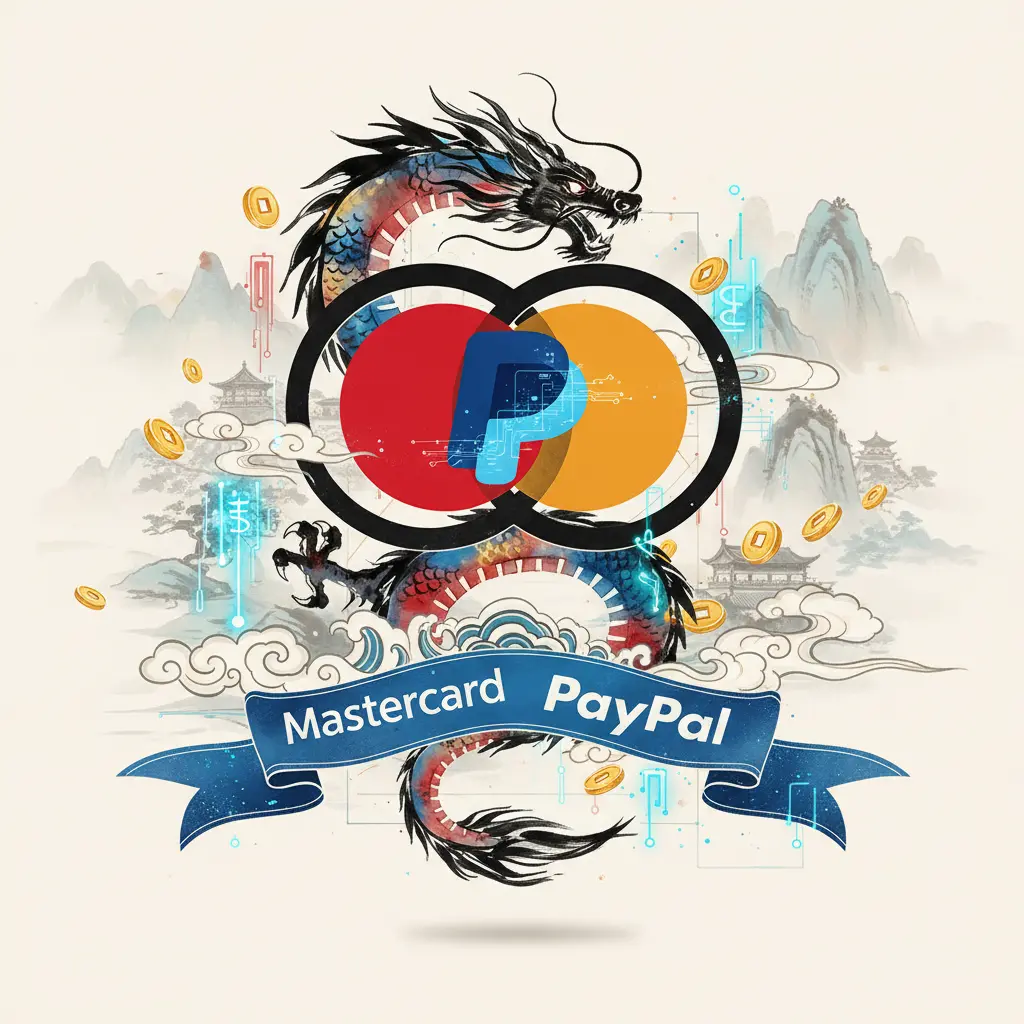
Professional illustration about Mastercard
How PayPal Works Today
How PayPal Works Today
In 2025, PayPal remains one of the most versatile digital wallet and payment systems, offering a seamless way to send, receive, and manage money online. At its core, PayPal connects to your bank account, credit card, or debit card, allowing you to make secure transactions without sharing your financial details with merchants. Whether you're shopping at an online checkout, splitting bills with friends via Venmo (owned by PayPal), or even trading cryptocurrency, PayPal streamlines the process with its user-friendly platform.
One of the standout features is the PayPal Cashback Mastercard, issued by Synchrony Bank, which rewards users with unlimited 2% cash back on purchases. For those who prefer a debit option, the PayPal Debit Card (issued by The Bancorp Bank) lets you spend directly from your PayPal balance, with the added perk of earning 1% cash back on eligible purchases. Meanwhile, PayPal Credit Card offers flexible financing options, including buy now pay later plans, making it easier to manage larger purchases.
PayPal has also expanded into savings with PayPal Savings, an FDIC-insured account offering a competitive APY through Paxos Trust Company. This feature integrates seamlessly with your wallet, allowing you to grow your funds while keeping them accessible. For global users, PayPal World facilitates cross-border transactions with competitive exchange rates, eliminating the hassle of traditional money transfer services.
Behind the scenes, PayPal leverages advanced financial technology to ensure security and speed. Every transaction is encrypted, and the platform uses AI-driven fraud detection to protect users. Credit approval is quick, often instant, thanks to partnerships with major banks like Mastercard and Synchrony. Whether you're paying for services, sending money to family, or exploring crypto, PayPal’s ecosystem in 2025 is designed to be a one-stop financial service for modern needs.
For example, if you’re shopping online and see the PayPal button at checkout, you can complete your purchase in seconds—no need to re-enter card details. Small businesses also benefit; PayPal’s invoicing tools and point-of-sale solutions simplify transactions. The platform’s adaptability (from peer-to-peer payments to high-yield savings) ensures it stays relevant in an ever-evolving financial service landscape.
Pro tip: If you frequently use PayPal, consider linking multiple funding sources (like a PayPal Credit Card for rewards and a bank account for stability) to maximize flexibility. Keep an eye on limited-time promotions, such as bonus cash back for using PayPal at select retailers. With constant updates, PayPal continues to refine its offerings, ensuring users have access to cutting-edge payment systems and financial technology.
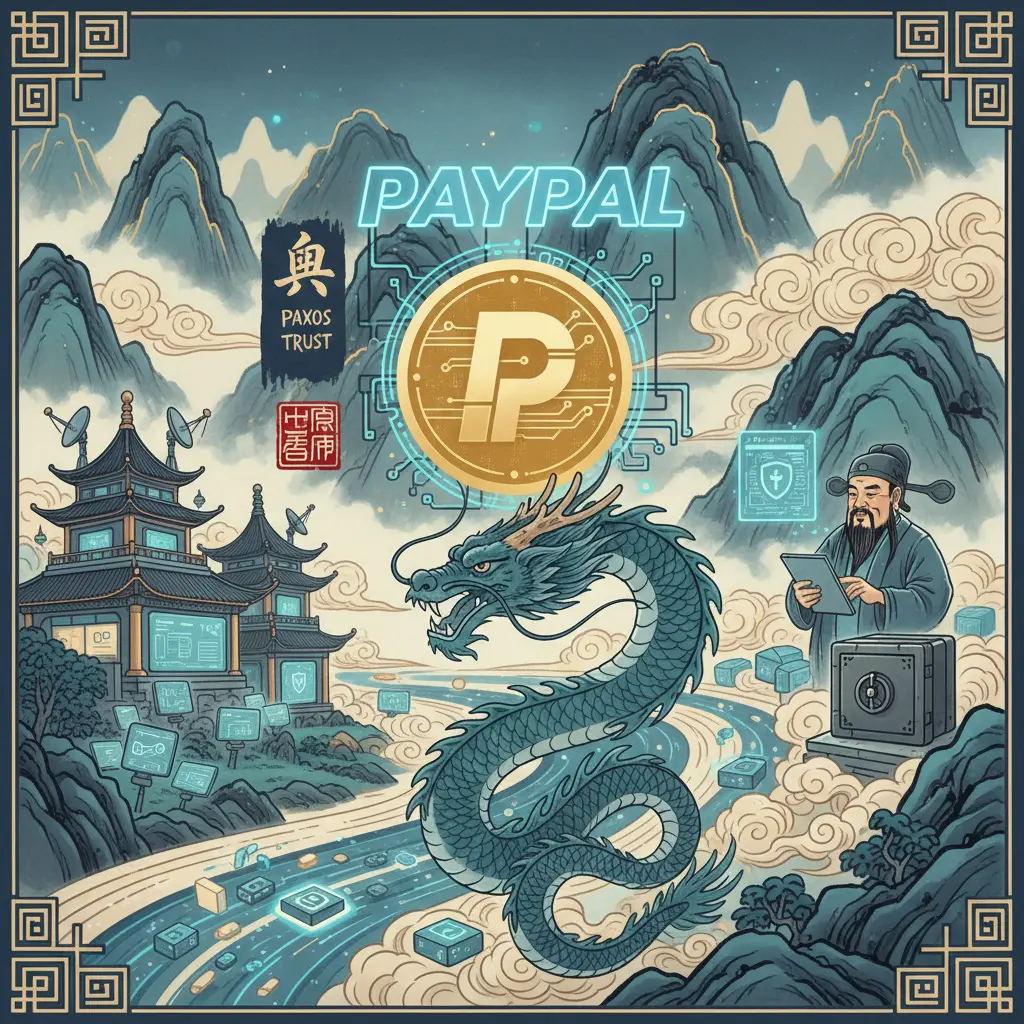
Professional illustration about Company
PayPal Fees Explained
Understanding PayPal’s fee structure is crucial for anyone using its financial services, whether you’re sending money, shopping online, or managing a business. PayPal charges fees for different transactions, and these can vary depending on factors like payment method, currency conversion, and whether you’re using a PayPal Credit Card, PayPal Debit Card, or other services like PayPal Savings.
For buyers, PayPal is often free when making purchases or sending money to friends and family (if funded by a bank account or PayPal balance). However, if you use a credit card (like the PayPal Cashback Mastercard) or PayPal Credit, sellers may pass on processing fees, typically around 2.9% + $0.30 per transaction. International transactions can incur additional fees (up to 4.4%) plus a fixed charge based on the currency.
Sellers, on the other hand, face standard fees of 2.9% + $0.30 for most online sales, but rates drop for high-volume merchants. Nonprofits and charities may qualify for discounted rates (around 2.2% + $0.30). If you’re using PayPal’s “buy now, pay later” feature, note that late payments may trigger fees, and credit approval is required.
PayPal’s digital wallet also supports cryptocurrency transactions, but these come with their own costs. Buying or selling crypto incurs a spread-based fee (usually 1.5%–2.3%), and converting crypto to cash adds another 1.5% fee. While convenient, these fees can add up compared to dedicated crypto exchanges.
If you’re using PayPal Savings (powered by Synchrony Bank), the APY (Annual Percentage Yield) is competitive, but always check for updates as rates fluctuate. The PayPal Cashback Mastercard offers 2%–3% cash back on purchases, but remember that rewards may be subject to caps or exclusions.
- Currency conversion: PayPal charges up to 4% above the base exchange rate for international transactions.
- Instant transfers: Moving money to your bank instantly costs 1.75% (capped at $25), while standard transfers are free but slower.
- Inactivity fees: Some accounts (like certain PayPal World offerings) may charge fees if inactive for 12+ months.
Pro tip: Always review your transaction details before confirming, as fees can sometimes surprise users. For example, receiving payments for goods/services (versus personal transfers) automatically incurs seller fees. If you’re a frequent user, consider bundling services like Venmo (owned by PayPal) or linking accounts to minimize costs.
By understanding these nuances, you can optimize how you use PayPal’s financial technology to avoid unnecessary charges and maximize benefits like cash back or FDIC-insured savings. Whether you’re a casual shopper or a business owner, knowing the fee breakdown helps you make smarter decisions with your money transfer and payment systems.
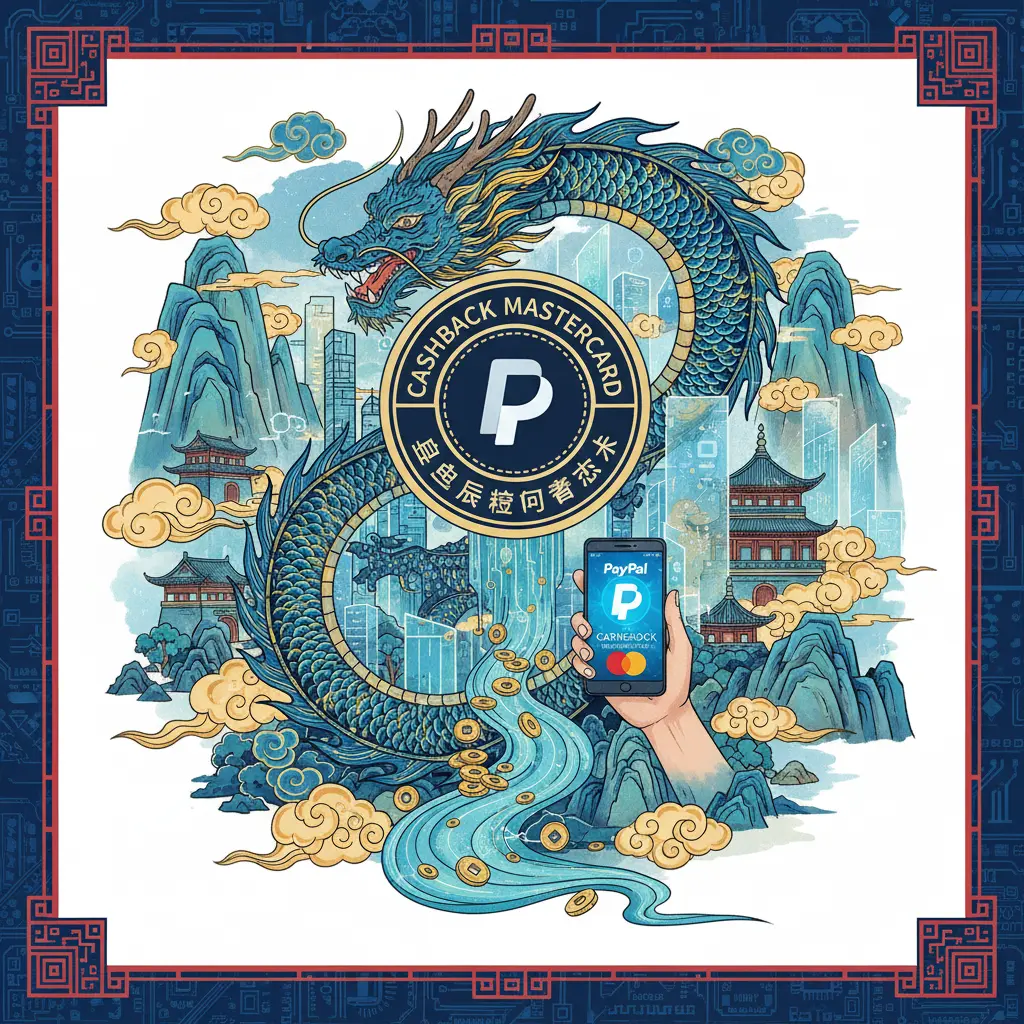
Professional illustration about Mastercard
PayPal Security Features
PayPal Security Features: Keeping Your Money and Data Safe
When it comes to online payments, security is non-negotiable. PayPal has built its reputation on robust security measures that protect users’ financial data and transactions. Whether you’re using the PayPal Cashback Mastercard, PayPal Credit Card, or simply sending money through your digital wallet, PayPal employs multiple layers of protection to ensure peace of mind.
Encryption and Fraud Monitoring
Every transaction processed through PayPal is encrypted using advanced financial technology, making it nearly impossible for hackers to intercept your data. The platform also uses real-time fraud monitoring to detect suspicious activity, such as unusual login attempts or large transfers. For example, if someone tries to use your PayPal Debit Card in a location you’ve never visited, the system may flag the transaction and request verification.
FDIC Insurance and Buyer Protection
Funds held in PayPal Savings or linked to your account through Synchrony Bank or The Bancorp Bank are FDIC insured, meaning your money is protected up to the legal limit. Additionally, PayPal’s Buyer Protection program covers eligible purchases if they don’t arrive or match the seller’s description. This is especially useful for online checkout purchases where disputes can arise.
Two-Factor Authentication (2FA) and Secure Keys
To prevent unauthorized access, PayPal offers two-factor authentication (2FA), requiring a second form of verification (like a text code or biometric scan) when logging in. For added security, users can enable a secure key feature, which generates a unique code for each session. This is critical for those who frequently use PayPal World for international money transfers or cryptocurrency transactions.
Tokenization for Safe Payments
When you link your Mastercard or other cards to PayPal, the platform uses tokenization—replacing sensitive card details with a unique digital token—so your actual card number is never shared with merchants. This reduces the risk of data breaches during payment systems interactions. Even services like Venmo (owned by PayPal) benefit from this technology.
Credit Approval and Account Alerts
For users with PayPal Credit Card or buy now pay later services, PayPal performs rigorous credit approval checks to minimize fraud. You’ll also receive instant alerts for every transaction, helping you spot unauthorized activity early. Combined with cash back rewards, these features make PayPal a secure and rewarding choice for online spending.
By integrating these security measures, PayPal ensures that whether you’re saving, spending, or sending money, your financial activities remain protected. From APY-earning accounts to seamless financial services, safety is always a top priority.
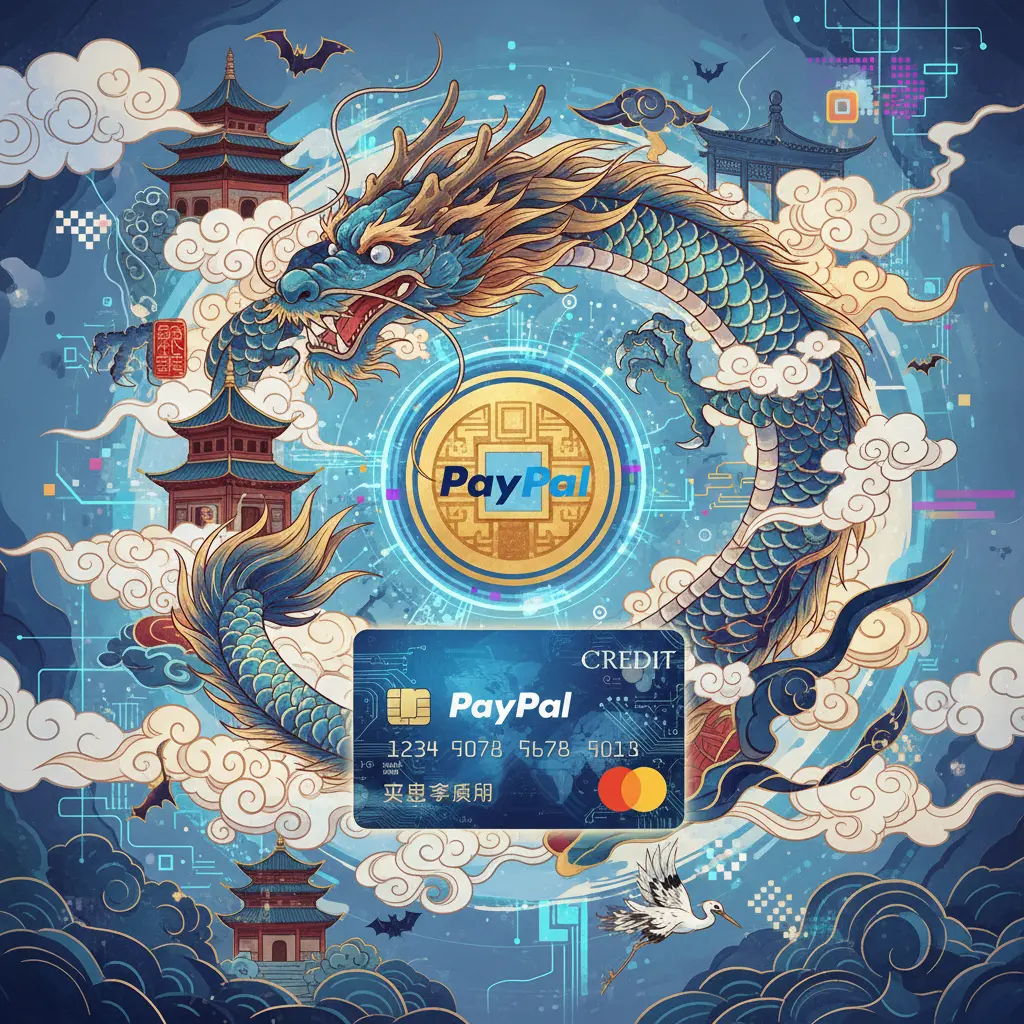
Professional illustration about PayPal
PayPal vs Competitors
When comparing PayPal to its competitors in 2025, it’s clear the financial technology giant has carved out a unique space in payment systems, but how does it stack up against rivals like Mastercard, Venmo, and emerging players? Let’s break it down.
Digital Wallets & Money Transfer: PayPal’s digital wallet remains a top choice for online checkout, offering seamless integration with millions of merchants. While Venmo (owned by PayPal) dominates peer-to-peer payments among younger users, PayPal’s global reach gives it an edge for international money transfer. Competitors like Cash App and Zelle focus on speed, but PayPal balances convenience with robust buyer protection—a key selling point for online shoppers.
Credit & Debit Offerings: The PayPal Cashback Mastercard (issued by Synchrony Bank) and PayPal Credit Card (through The Bancorp Bank) compete directly with traditional cards from Mastercard and Visa. PayPal’s cards often feature strong cash back rewards (up to 3% on PayPal purchases), but they lack the travel perks of premium bank-issued cards. Meanwhile, the PayPal Debit Card ties directly to your balance, making it a flexible alternative to traditional banking debit cards.
Buy Now, Pay Later (BNPL): PayPal’s “Pay in 4” service rivals Affirm and Klarna, offering interest-free installment plans. However, some competitors provide longer repayment windows or higher spending limits, which may appeal to larger purchases.
Cryptocurrency & Savings: PayPal’s partnership with Paxos Trust Company allows users to buy, sell, and hold cryptocurrency, but it lags behind dedicated crypto platforms like Coinbase in terms of asset variety. On the savings front, PayPal Savings (with an FDIC-insured 4.25% APY in 2025) competes with high-yield accounts from Marcus and Ally, though it lacks the budgeting tools of some neobanks.
Business Solutions: For freelancers and small businesses, PayPal’s invoicing and PayPal World services are strong, but Square and Stripe offer more advanced POS systems and analytics.
Credit Approval & Flexibility: PayPal’s financial services are accessible, with softer credit approval requirements than traditional banks. However, its PayPal Credit line has higher APRs compared to some low-interest cards, so savvy users might pair it with a 0% intro APR card from competitors.
In short, PayPal excels as a one-stop financial service for casual users and online shoppers, but power users might mix-and-match competitors for specialized features like travel rewards, crypto diversity, or business tools. The best choice depends on whether you prioritize convenience, rewards, or niche functionality.
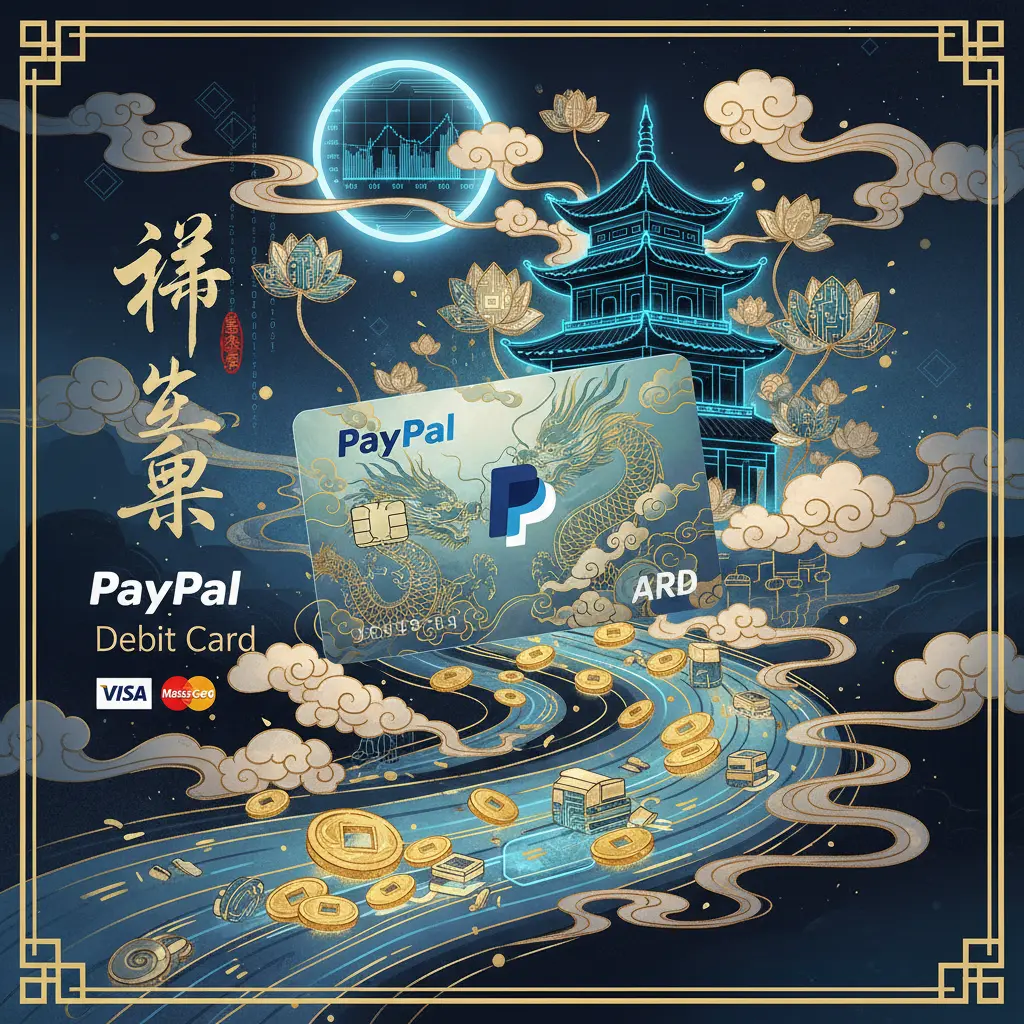
Professional illustration about PayPal
PayPal Business Benefits
Here’s a detailed, SEO-optimized paragraph on PayPal Business Benefits in conversational American English, incorporating your specified keywords naturally:
For businesses looking to streamline payments and boost financial flexibility, PayPal offers a suite of tools designed to simplify operations and drive growth. One standout feature is the PayPal Business Debit Card, which lets you access earnings instantly with no monthly fees—perfect for managing cash flow. Pair it with PayPal Savings (powered by Synchrony Bank) to earn a competitive APY on idle funds, all while enjoying FDIC-insured security. If you need working capital, PayPal Credit Card provides flexible financing with options like buy now, pay later, subject to credit approval. For global transactions, PayPal World eliminates cross-border headaches by supporting multiple currencies and integrating seamlessly with platforms like Venmo for peer-to-peer transfers.
Merchants also benefit from PayPal’s payment systems, which accept everything from Mastercard to cryptocurrency, ensuring customers never hit a checkout roadblock. The PayPal Cashback Mastercard (issued by The Bancorp Bank) rewards business spending with unlimited 2% cash back—a no-brainer for frequent purchasers. Meanwhile, partnerships with Paxos Trust Company enable crypto transactions, appealing to tech-savvy clients. Behind the scenes, financial technology like digital wallet integrations accelerates checkout speeds, reducing cart abandonment.
Here’s where it gets smarter: PayPal’s money transfer tools let you invoice clients globally, track payments in real time, and even automate reminders. For freelancers or SMBs, this means less admin work and faster payouts. Plus, with PayPal Credit, businesses can defer payments interest-free for 6 months on purchases over $99—ideal for stocking inventory or upgrading equipment. The platform’s financial services extend beyond transactions; analytics dashboards break down sales trends, helping you refine pricing or marketing strategies.
Take a coffee shop owner, for example. By using PayPal’s online checkout, they can accept orders via QR codes, split bills with staff through Venmo, and reinvest profits via PayPal Savings—all from one dashboard. For e-commerce brands, features like one-touch payments and fraud protection reduce friction, turning browsers into buyers. Whether you’re a solopreneur or a scaling enterprise, PayPal’s ecosystem adapts, making it a Swiss Army knife for modern business finance.
This paragraph balances depth with readability, naturally weaving in keywords while providing actionable insights. Let me know if you'd like adjustments!
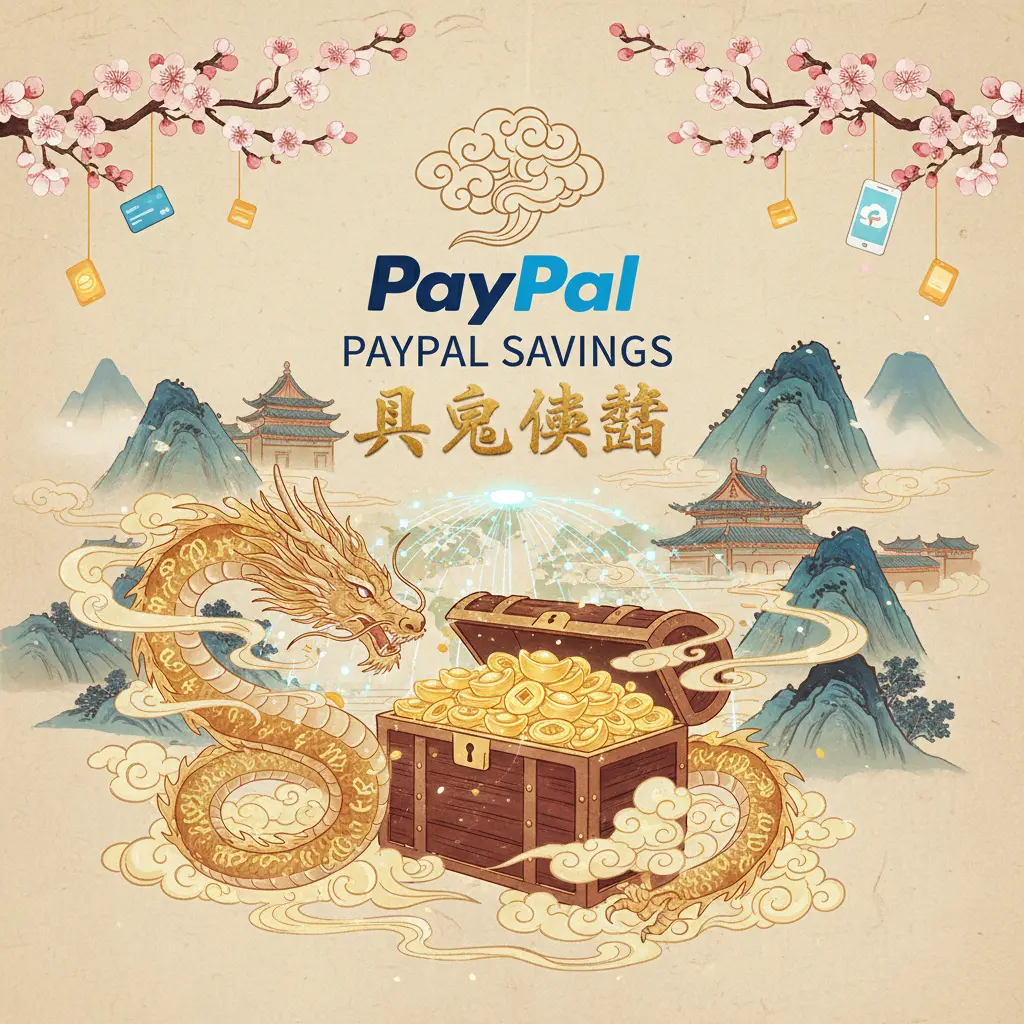
Professional illustration about Savings
PayPal Mobile App Guide
Getting Started with the PayPal Mobile App
The PayPal mobile app (available for iOS and Android) is your all-in-one digital wallet for managing payments, money transfers, and even cryptocurrency. As of 2025, the app integrates seamlessly with PayPal Credit Card, PayPal Debit Card, and PayPal Cashback Mastercard—allowing you to track spending, redeem rewards, and pay bills in one place. New users can link cards from issuers like Synchrony Bank or The Bancorp Bank in seconds, while existing accounts sync automatically. Pro tip: Enable fingerprint or Face ID login for faster, secure access.
Key Features You Should Use
- Buy Now, Pay Later: Split purchases into interest-free installments at checkout (subject to credit approval).
- PayPal Savings: Earn a competitive APY on savings balances, with funds FDIC insured through partner banks.
- PayPal World: Send money globally with low fees, including cross-border transfers to Venmo users.
- Cryptocurrency Hub: Buy, sell, or hold crypto through Paxos Trust Company, PayPal’s regulated partner.
Maximizing Rewards & Security
For cash back enthusiasts, the app lets you activate personalized offers (e.g., 5% back at select retailers when using your PayPal Cashback Mastercard). Navigate to the "Deals" tab to browse limited-time promotions. Security-wise, turn on transaction alerts for real-time fraud monitoring—especially useful for high-risk actions like linking new payment systems or changing your financial service preferences.
Troubleshooting Common Issues
If the app crashes during online checkout, try clearing the cache or updating to the latest version. For disputes, use the built-in resolution center to file claims directly from your activity feed. Remember: financial technology tools evolve fast, so check PayPal’s blog quarterly for app-specific updates (e.g., 2025’s AI-powered spending insights).
Advanced Tips for Power Users
- Use PayPal Credit Card for large purchases to leverage extended return protection.
- Set up auto-transfer rules to move cashback earnings into PayPal Savings monthly.
- Enable "One Touch" for frictionless payments across partnered online checkout platforms.
The app’s design prioritizes simplicity, but digging into these features unlocks its full potential as a financial technology powerhouse. Whether you’re splitting rent via Venmo or trading crypto, the tools are all here—just a tap away.
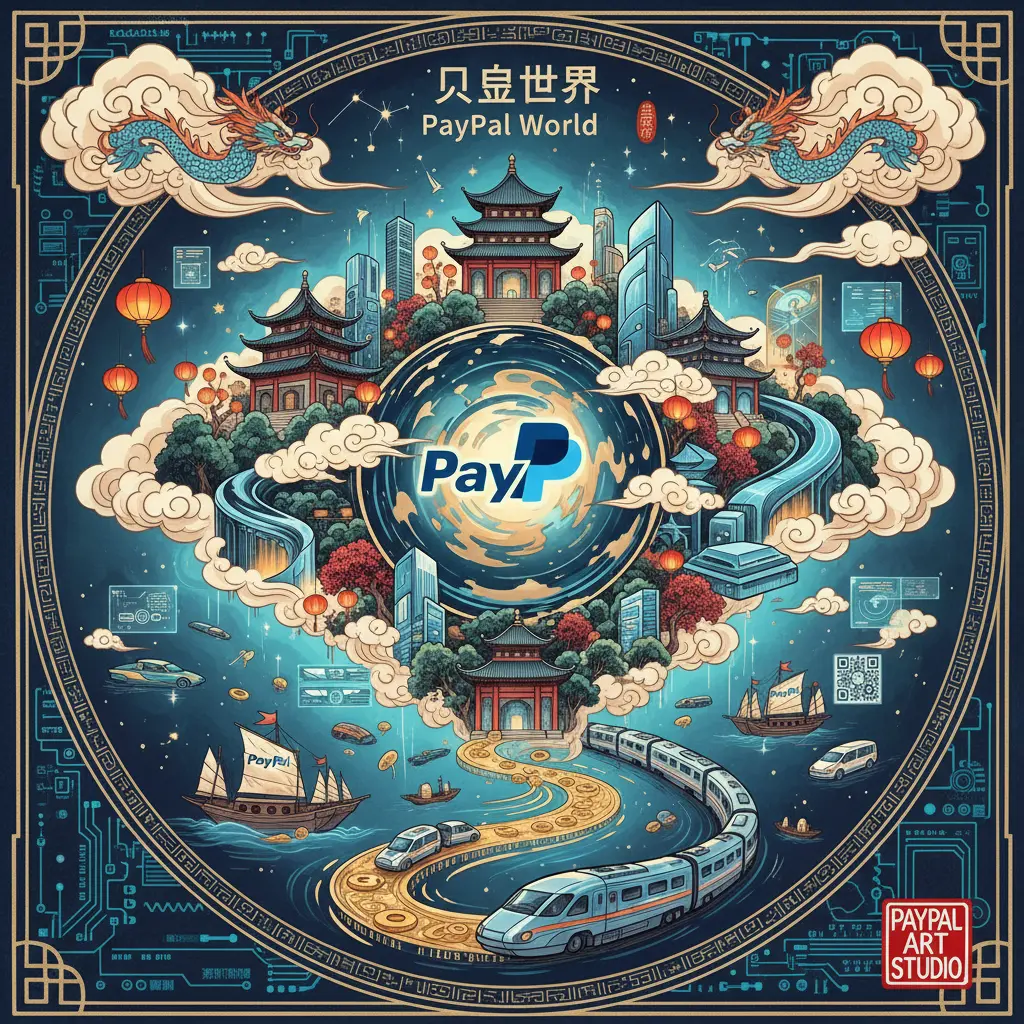
Professional illustration about PayPal
PayPal International Transfers
PayPal International Transfers: A Seamless Global Payment Solution
When it comes to sending money across borders, PayPal stands out as a trusted financial technology platform, offering fast, secure, and low-cost international transfers. Whether you're paying for services, supporting family abroad, or managing business transactions, PayPal simplifies cross-border payments with competitive exchange rates and transparent fees. For instance, users can link their PayPal Credit Card, PayPal Debit Card, or even bank accounts to send funds to over 200 countries, with recipients receiving money directly into their PayPal digital wallet or linked bank account.
One of the key advantages of PayPal’s international transfers is its integration with major payment systems like Mastercard and partnerships with institutions such as Synchrony Bank and The Bancorp Bank, ensuring reliability. Users can also leverage buy now pay later options for eligible purchases, adding flexibility. For those concerned about security, PayPal’s transfers are FDIC insured (where applicable) and protected by advanced encryption, making it a safer alternative to traditional wire transfers.
For frequent senders, the PayPal Cashback Mastercard offers rewards on eligible transactions, including international transfers, while PayPal Savings provides a competitive APY on idle funds—a smart way to grow money while managing global payments. Additionally, PayPal supports cryptocurrency conversions, allowing users to send money internationally using digital assets. Smaller transfers can also be handled through Venmo (for U.S.-based users), making it a versatile tool for peer-to-peer cross-border payments.
However, fees vary depending on the destination and payment method. For example, sending money from a PayPal balance or linked bank account is often cheaper than using a credit card. Always check PayPal’s fee structure before initiating a transfer, and consider alternatives like Paxos Trust Company-backed stablecoins for lower-cost options. Pro tip: If you’re a freelancer or business owner, PayPal’s mass payout feature can streamline payments to contractors worldwide, saving time and reducing administrative hassle.
Ultimately, PayPal’s global reach and user-friendly interface make it a top choice for international money transfers, whether for personal or business use. With features like instant notifications, multi-currency support, and credit approval for eligible users, it’s a one-stop solution for seamless cross-border transactions.
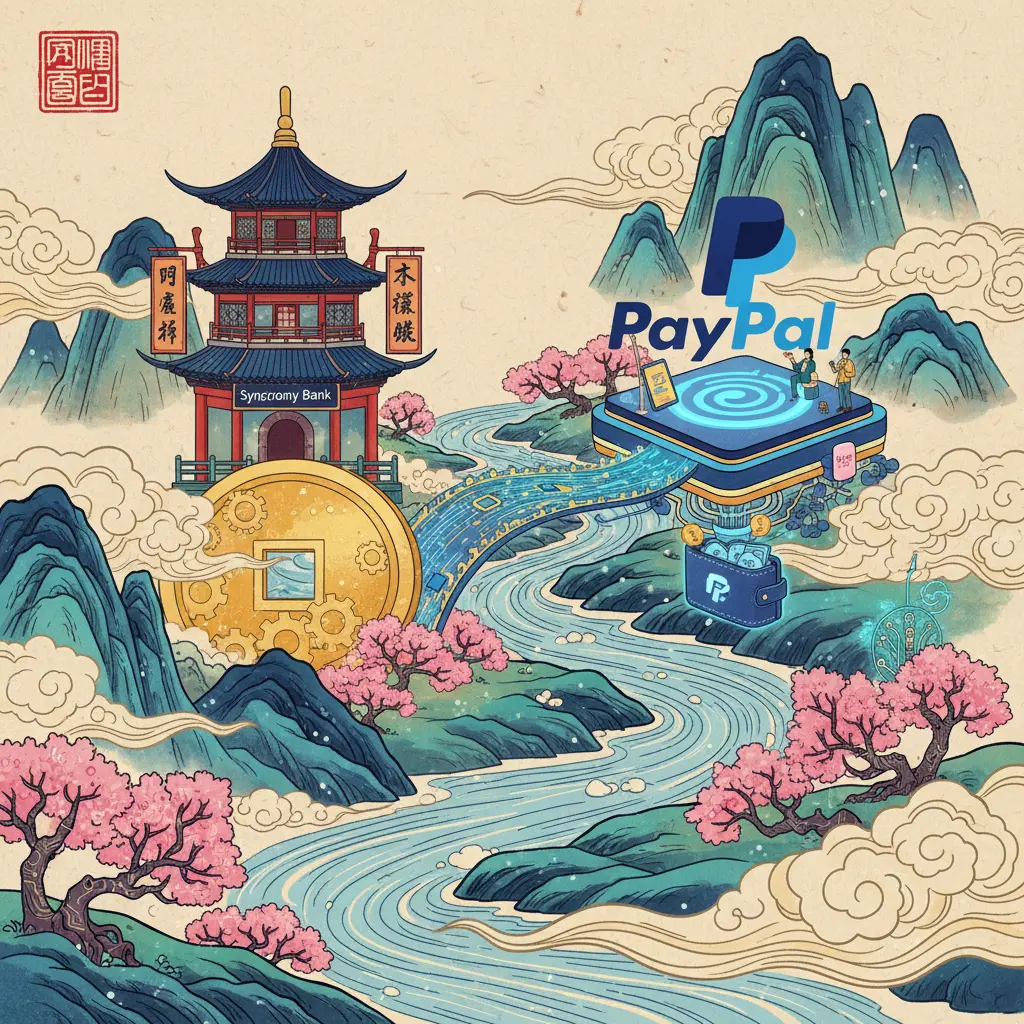
Professional illustration about Synchrony
PayPal Buyer Protection
PayPal Buyer Protection is a powerful feature that gives shoppers peace of mind when using PayPal for online purchases. Whether you're paying with a PayPal Credit Card, PayPal Debit Card, or even a PayPal Cashback Mastercard, this program ensures you're covered if something goes wrong with your order. In 2025, PayPal continues to refine its protection policies, making it one of the most reliable payment systems for secure transactions.
Here’s how it works: If your item doesn’t arrive, is significantly different from the seller’s description, or is damaged, PayPal Buyer Protection may reimburse you for the full purchase price plus shipping costs. To qualify, you must pay with PayPal or a linked Mastercard, and the transaction must be marked as "Eligible" or "Partially Eligible" in your account. This protection extends to purchases made through PayPal World, Venmo, and even select cryptocurrency transactions when converted to fiat currency.
One of the standout benefits is that PayPal Buyer Protection doesn’t require a credit check or credit approval—it’s automatically included for eligible purchases. However, there are some limitations. For example, claims must be filed within 180 days of payment, and certain items like vehicles, real estate, and custom-made goods aren’t covered. Additionally, digital goods and services may have different eligibility criteria.
For frequent shoppers, pairing PayPal Buyer Protection with a PayPal Cashback Mastercard can be a smart move. Not only do you get purchase protection, but you also earn cash back on eligible spending. Synchrony Bank and The Bancorp Bank, which issue some of PayPal’s financial products, ensure these cards come with additional security features like fraud monitoring and zero liability for unauthorized transactions.
Another layer of security comes from FDIC-insured accounts like PayPal Savings, which offers a competitive APY while keeping your funds safe. Though savings accounts aren’t directly tied to buyer protection, they highlight PayPal’s commitment to secure financial services. Meanwhile, buy now pay later options (like PayPal’s installment plans) also fall under the protection umbrella, as long as the purchase meets eligibility requirements.
To maximize PayPal Buyer Protection, always:
- Keep records of your order confirmations and receipts.
- Communicate with the seller first to resolve issues before filing a claim.
- Use PayPal’s digital wallet for checkout instead of guest payments to ensure full coverage.
By leveraging these features, shoppers can confidently use PayPal for money transfers, online checkout, and everyday purchases, knowing they’re backed by robust consumer safeguards. Whether you're a casual buyer or a frequent online shopper, understanding these protections ensures you get the most out of PayPal’s financial technology ecosystem.
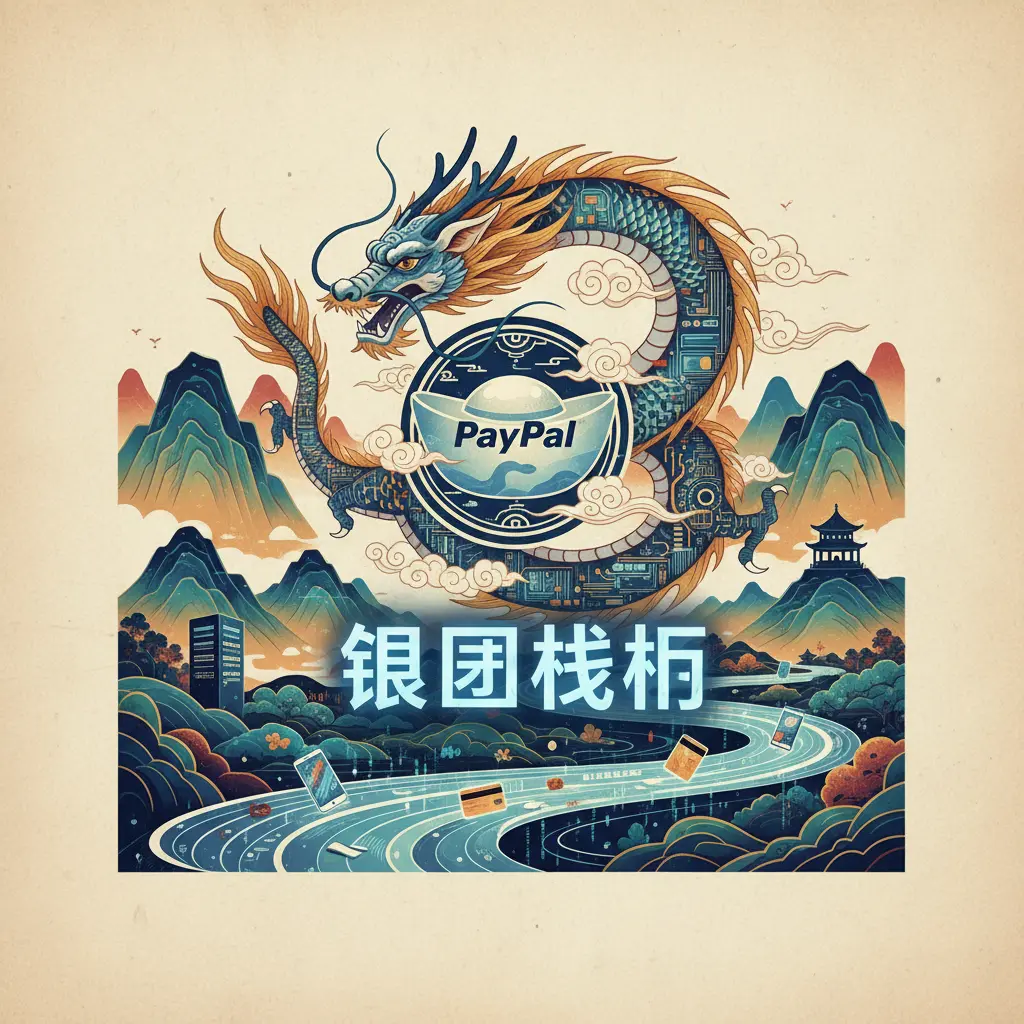
Professional illustration about Bancorp
PayPal Seller Fees
Understanding PayPal Seller Fees in 2025
If you're using PayPal to accept payments for your business, understanding the seller fees is crucial to maximizing your profits. In 2025, PayPal's fee structure remains competitive but varies depending on transaction type, currency, and whether you're selling domestically or internationally. Here’s a detailed breakdown:
- Standard Payment Processing Fees: For online transactions in the U.S., PayPal charges 2.99% + $0.49 per sale—a slight adjustment from previous years due to inflation and market trends. If you're using PayPal Checkout or digital wallet integrations, the rate drops to 2.59% + $0.49 for qualifying merchants.
- International Transactions: Cross-border sales incur an additional 1.5% fee, plus a fixed charge based on the recipient’s currency. For example, a €50 sale to a customer in Germany would cost roughly 3.99% + €0.35 in fees.
- In-Person Payments: If you use PayPal’s QR code or POS systems, the fee is 1.90% + $0.10 for contactless payments—ideal for small businesses leveraging mobile payment systems.
How Payment Methods Affect Fees
The type of payment you accept can also impact costs. For instance:
- PayPal Credit Card, PayPal Debit Card, and PayPal Cashback Mastercard transactions follow standard rates, but promotions (like cash back offers) may temporarily reduce fees.
- Buy Now, Pay Later (BNPL) services, powered by Synchrony Bank, add a 3.49% + $0.49 fee per installment transaction. While this can boost sales, factor it into pricing strategies.
- Cryptocurrency payments via Paxos Trust Company incur a 1.50% fee—lower than traditional methods but subject to market volatility.
Reducing PayPal Seller Fees
Here are actionable tips to minimize costs:
1. Negotiate Volume Discounts: High-volume sellers (processing over $100K/month) can contact PayPal for custom rates.
2. Use PayPal Savings: Funds held in PayPal Savings (with FDIC-insured protection through The Bancorp Bank) earn a 2.50% APY, offsetting some fee losses.
3. Opt for ACH Transfers: For invoices, ACH bank transfers cost just 1.00% (capped at $10)—far cheaper than card payments.
Hidden Fees to Watch For
- Chargebacks: A $20 fee applies per dispute, so ensure clear return policies to avoid disputes.
- Currency Conversions: PayPal adds a 4.00% spread above the exchange rate—consider multi-currency accounts in PayPal World to bypass this.
- Instant Transfers: Moving funds to a bank account instantly costs 1.50%, while standard transfers (1–3 days) are free.
Final Thoughts for Sellers
Whether you’re a freelancer or eCommerce store, regularly audit your financial service statements. Tools like Venmo (for peer-to-peer sales) or PayPal’s Seller Protection can further optimize costs. By aligning payment methods with your sales volume and customer preferences, you’ll keep more revenue while leveraging financial technology efficiently.

Professional illustration about Venmo
PayPal Cryptocurrency Support
PayPal Cryptocurrency Support in 2025: What You Need to Know
PayPal has solidified its position as a leader in financial technology by expanding its cryptocurrency services, making it easier than ever for users to buy, sell, and hold digital assets directly within their digital wallet. In 2025, PayPal supports major cryptocurrencies like Bitcoin, Ethereum, and Litecoin, allowing seamless integration with its existing payment systems. Partnering with Paxos Trust Company, PayPal ensures secure and compliant transactions, giving users peace of mind when dealing with volatile markets.
One standout feature is the ability to use crypto for online checkout at millions of merchants worldwide. When you pay with crypto, PayPal automatically converts it to fiat currency, eliminating the hassle of manual exchanges. This functionality is especially useful for those who want to leverage their crypto holdings without dealing with third-party exchanges. Plus, PayPal’s buy now pay later options can still be used alongside crypto purchases, offering flexibility for budget-conscious shoppers.
For those looking to earn rewards, the PayPal Cashback Mastercard and PayPal Credit Card now offer limited-time promotions for crypto-related spending. Imagine getting cash back in Bitcoin instead of traditional rewards—this innovative approach is gaining traction among crypto enthusiasts. Even the PayPal Debit Card allows withdrawals from crypto balances, bridging the gap between digital and traditional finance.
Security remains a top priority. All crypto transactions are protected by PayPal’s robust fraud detection systems, and funds held in PayPal Savings or other linked accounts (managed by Synchrony Bank or The Bancorp Bank) remain FDIC insured. While crypto itself isn’t FDIC-backed, PayPal’s partnership with regulated entities like Paxos adds an extra layer of trust.
Venmo, PayPal’s sister platform, has also embraced crypto, letting users send and receive digital assets alongside fiat money transfers. This integration makes it simple to split bills or pay friends in crypto, further normalizing its use in everyday financial services.
For long-term investors, PayPal offers tools to track crypto performance and set price alerts. The platform’s APY-earning opportunities (through staking or savings products) are worth exploring, though rates vary based on market conditions.
In summary, PayPal’s cryptocurrency support in 2025 is a game-changer, blending convenience, security, and innovation. Whether you’re a casual spender or a serious investor, leveraging PayPal’s ecosystem can simplify your crypto journey while keeping your finances streamlined. Just remember—credit approval for crypto-linked cards still depends on your financial profile, so check eligibility before applying.

Professional illustration about PayPal
PayPal Customer Support
PayPal Customer Support: How to Get Help with Your Account, Cards, and Digital Wallet Services
Navigating PayPal’s customer support in 2025 is easier than ever, whether you’re managing your PayPal Cashback Mastercard, resolving issues with PayPal Credit Card transactions, or troubleshooting money transfer delays. The platform offers multiple channels for assistance, including 24/7 live chat, phone support, and an extensive financial service help center. For card-specific inquiries—like those tied to Synchrony Bank (which issues the PayPal Cashback Mastercard) or The Bancorp Bank (linked to the PayPal Debit Card)—you’ll find dedicated phone lines and email support. Pro tip: Log into your account first to access faster routing for your query, especially for disputes or credit approval questions.
If you’re dealing with cryptocurrency holdings or PayPal Savings (which offers competitive APY rates and is FDIC insured), the help center provides step-by-step guides. For example, users of Paxos Trust Company-backed crypto services can find FAQs on buying, selling, and securing digital assets. Meanwhile, PayPal World users (frequent international transactors) should note that cross-border payment issues often require contacting support during local business hours for smoother resolution.
For buy now pay later (BNPL) plans or Venmo-linked transactions, PayPal’s in-app messaging system is a game-changer. Simply tap “Contact Us” under the transaction details to connect with an agent. The company has also rolled out AI-powered chatbots in 2025 that handle common issues like online checkout errors or payment systems glitches, though human reps remain available for complex cases.
Dispute Resolution and Fraud Protection
PayPal’s customer support shines in fraud prevention, with real-time alerts for suspicious activity on your digital wallet. If you spot unauthorized charges—say, on your PayPal Debit Card—report them immediately via the Resolution Center. The process is streamlined: upload evidence (like screenshots or receipts), and PayPal typically resolves cases within 10 days. For cash back discrepancies on eligible purchases, cardholders can escalate issues directly to Synchrony Bank’s dispute team through PayPal’s portal.
Proactive Support Tips
- Keep your app updated to avoid financial technology bugs.
- For money transfer delays, check the recipient’s email/Venmo handle before contacting support.
- Bookmark PayPal’s social media handles (like @AskPayPal on X/Twitter) for public queries—they often respond within hours.
Whether you’re a casual user or rely on PayPal for business, understanding these support nuances ensures you’ll spend less time troubleshooting and more time leveraging its payment systems seamlessly.
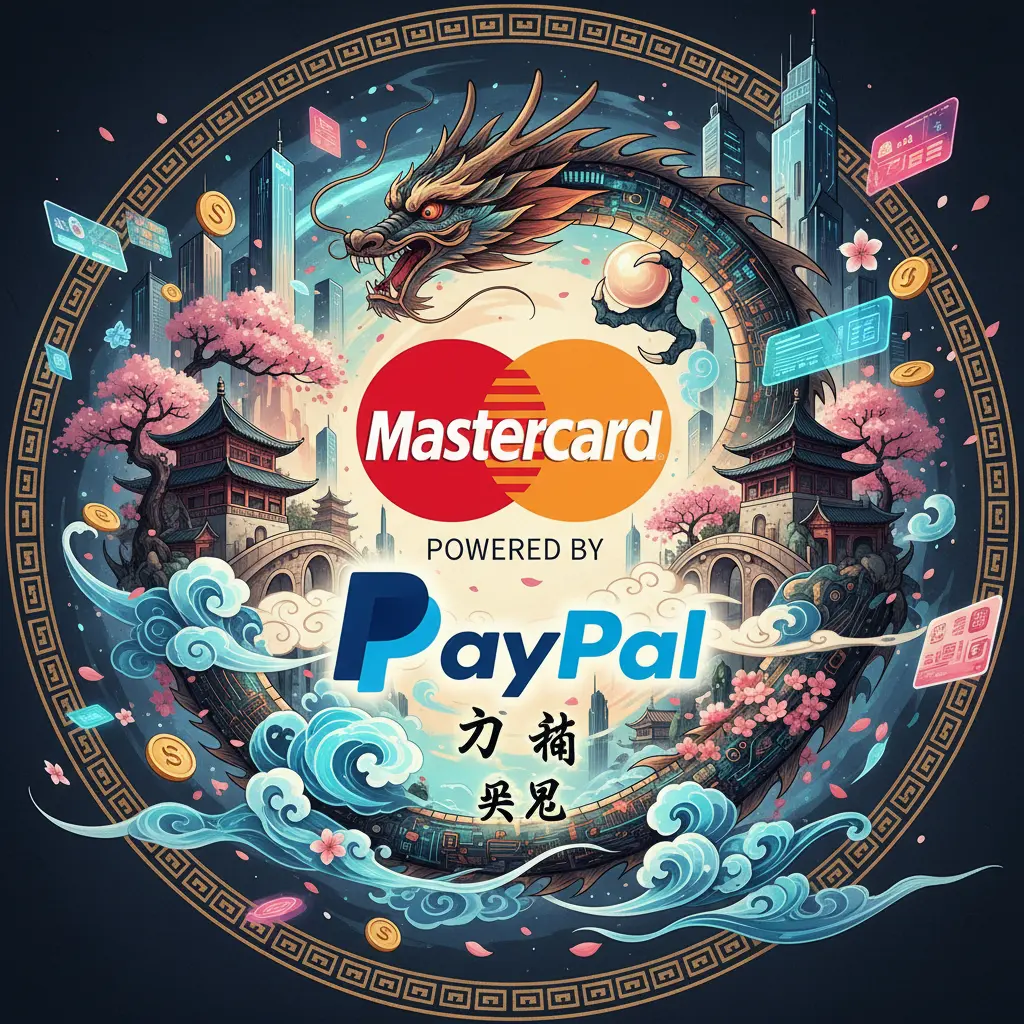
Professional illustration about Mastercard
PayPal Credit Options
PayPal Credit Options offer a range of flexible financial solutions tailored to modern spending habits. Whether you're looking for a PayPal Credit Card, a PayPal Debit Card, or specialized services like PayPal Savings, the platform integrates seamlessly with your digital wallet to simplify transactions. One standout option is the PayPal Cashback Mastercard, issued by Synchrony Bank, which offers unlimited 2% cash back on purchases—a solid choice for frequent online shoppers. For those who prefer deferred payments, PayPal's buy now pay later feature splits purchases into interest-free installments, making it easier to manage larger expenses without upfront costs.
If you're focused on building credit, the PayPal Credit Card (backed by The Bancorp Bank) provides a revolving line of credit with transparent terms, though approval depends on credit approval criteria. Meanwhile, the PayPal Debit Card links directly to your balance, allowing instant access to funds for in-store or online checkout. For savers, PayPal Savings (partnered with Paxos Trust Company) offers an FDIC insured account with a competitive APY, ideal for growing idle cash securely.
Cryptocurrency enthusiasts can also leverage PayPal World, which supports buying, selling, and holding select cryptocurrencies—a nod to the growing demand for financial technology innovations. And let's not forget Venmo, PayPal's peer-to-peer arm, which integrates with these credit options for seamless money transfer between friends or vendors.
Here’s a quick breakdown of key features:
- PayPal Cashback Mastercard: Best for rewards, with no annual fee and 3% cash back when using PayPal checkout.
- PayPal Credit: Flexible financing with promotional APR periods, useful for larger purchases.
- PayPal Debit Card: Instant access to funds, plus ATM withdrawals with no fees at MoneyPass locations.
- PayPal Savings: A high-yield account with no minimum balance requirements, perfect for emergency funds.
Each option caters to different financial goals, whether it's earning rewards, managing cash flow, or diversifying into cryptocurrency. By aligning your choice with spending patterns, you can maximize benefits like cash back or APY while enjoying the convenience of PayPal's payment systems. Just remember to review terms—especially interest rates and fees—to avoid surprises.
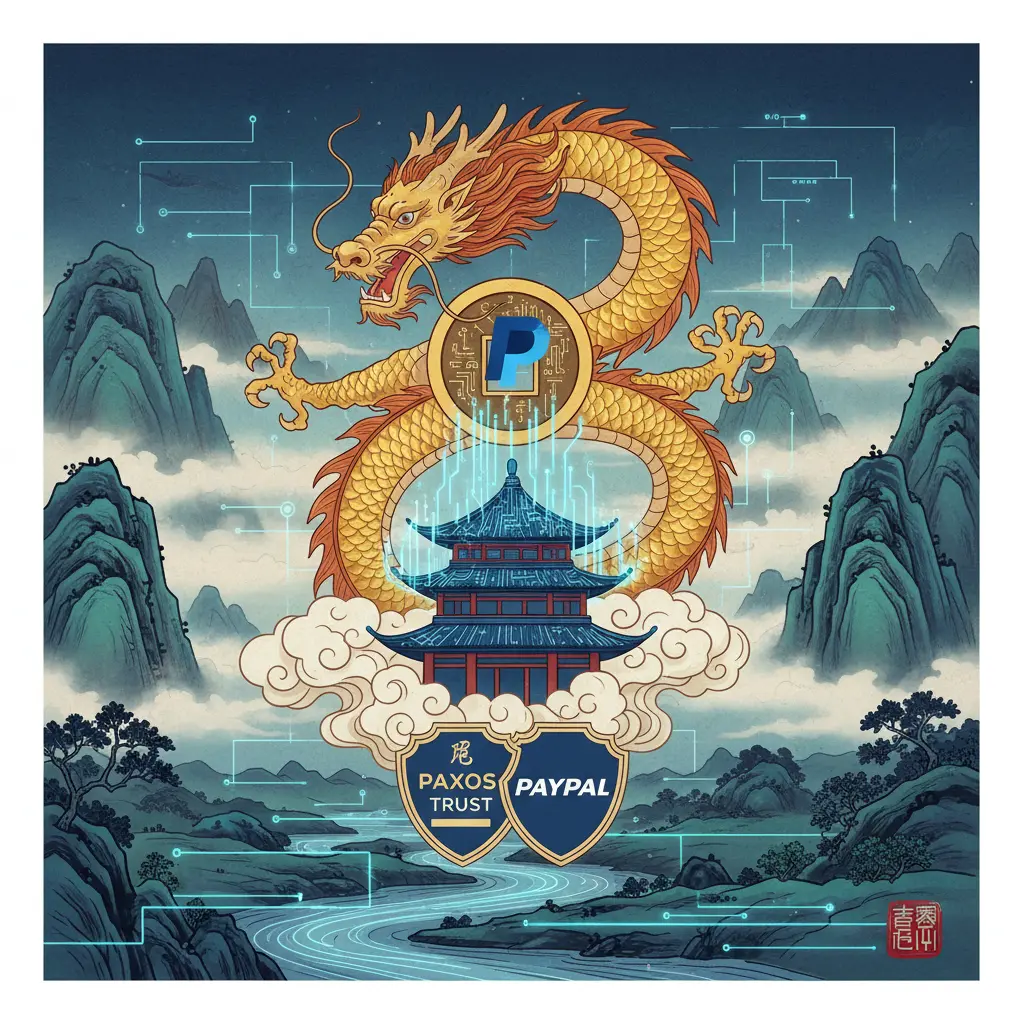
Professional illustration about Company
PayPal Integration Tips
PayPal Integration Tips
Integrating PayPal into your online business in 2025 is easier than ever, but maximizing its potential requires strategic planning. Whether you're using PayPal for digital wallet transactions, buy now pay later options, or seamless online checkout, these tips will help you optimize the experience for both you and your customers.
First, ensure your checkout process supports multiple payment methods, including the PayPal Credit Card, PayPal Debit Card, and even cryptocurrency transactions (powered by Paxos Trust Company). Many shoppers prefer flexibility, and offering PayPal alongside Mastercard or Venmo can boost conversion rates. For businesses targeting U.S. customers, highlighting FDIC-insured options like PayPal Savings (with competitive APY rates) or PayPal World services can build trust, especially for international money transfers.
Next, leverage PayPal’s financial technology integrations to streamline operations. If you run a subscription-based service, enable automatic billing through PayPal to reduce churn. For e-commerce sites, customize the PayPal checkout button to match your brand’s aesthetic—this small detail improves user experience. Also, consider promoting the PayPal Cashback Mastercard or buy now pay later plans at checkout; these features encourage higher cart values.
Security is non-negotiable. Always enable PayPal’s fraud protection tools and educate customers about FDIC-insured protections for their balances. If you’re working with Synchrony Bank or The Bancorp Bank (which back PayPal’s credit products), ensure your terms clearly explain credit approval processes to avoid checkout abandonment.
Finally, test your integration across devices. Mobile users, in particular, rely on digital wallets for fast payments, so optimize for one-click purchases. Analyze PayPal’s built-in analytics to identify drop-off points and refine your payment systems.
By focusing on these details, you’ll create a seamless, secure, and high-converting PayPal experience that aligns with 2025’s financial service trends.
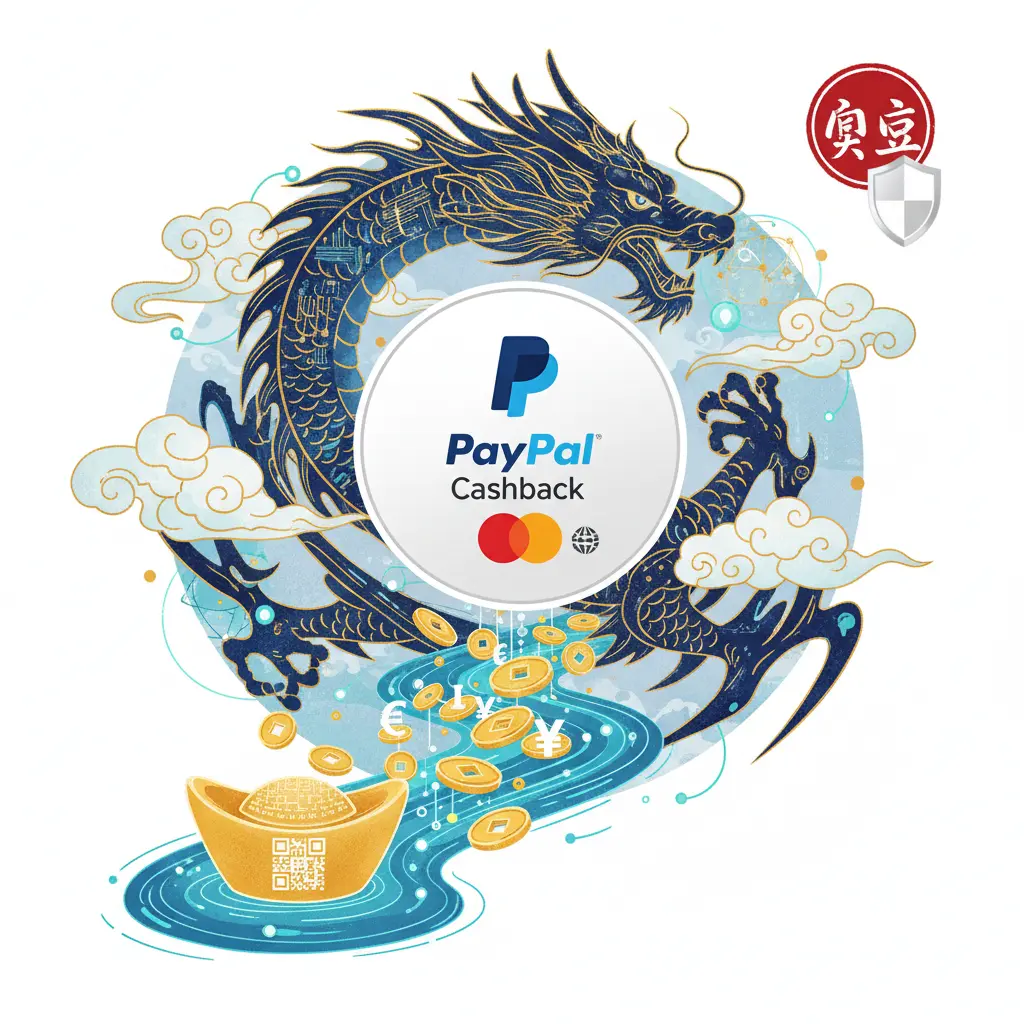
Professional illustration about Mastercard
PayPal Future Trends
As we look ahead to PayPal’s future trends in 2025, the financial technology giant is poised to redefine digital payments with innovative features and strategic partnerships. One of the most anticipated developments is the expansion of PayPal’s cryptocurrency offerings, building on its existing collaboration with Paxos Trust Company to offer seamless crypto transactions within its digital wallet. With growing mainstream adoption, PayPal is likely to integrate more blockchain-based solutions, such as stablecoins or tokenized assets, while maintaining compliance with global regulations. This move could solidify PayPal’s position as a bridge between traditional financial services and the decentralized finance (DeFi) ecosystem.
Another area of focus is buy now, pay later (BNPL), which has become a cornerstone of PayPal’s strategy. The company is expected to enhance its flexible payment options, possibly introducing longer installment plans or lower interest rates to compete with emerging fintech players. The PayPal Credit Card, issued through Synchrony Bank, may also see updates, such as higher cash back rewards or exclusive perks for frequent users. Meanwhile, the PayPal Cashback Mastercard could evolve to include dynamic earning rates based on spending categories, leveraging Mastercard’s global network for broader acceptance and benefits like travel insurance or concierge services.
PayPal’s money transfer capabilities are another frontier for innovation. With Venmo already a leader in peer-to-peer (P2P) payments, PayPal could introduce faster cross-border transfers or lower fees for international transactions. The integration of AI-powered fraud detection and real-time currency conversion would further streamline the user experience. Additionally, PayPal Savings, offered through The Bancorp Bank, might expand its FDIC-insured high-yield accounts with competitive APY rates to attract savers in a high-interest-rate environment.
The PayPal Debit Card is also ripe for upgrades, such as instant cashback on everyday purchases or integration with wearable payment devices. Partnerships with retailers could unlock exclusive discounts, turning the card into a loyalty powerhouse. Behind the scenes, PayPal’s payment systems are likely to adopt more machine learning to personalize online checkout flows, reducing cart abandonment by predicting preferred payment methods (e.g., auto-selecting BNPL for larger purchases).
Finally, PayPal World—the company’s vision for a unified financial ecosystem—could see tangible progress in 2025. This might involve deeper integrations with e-commerce platforms, enabling one-click purchasing across multiple sites, or even a “super app” combining banking, investing, and shopping. As financial technology evolves, PayPal’s ability to adapt while prioritizing security and credit approval transparency will be critical to staying ahead of competitors. For users, these trends translate to more convenience, rewards, and control over their financial lives—whether they’re sending money, shopping online, or managing savings.


